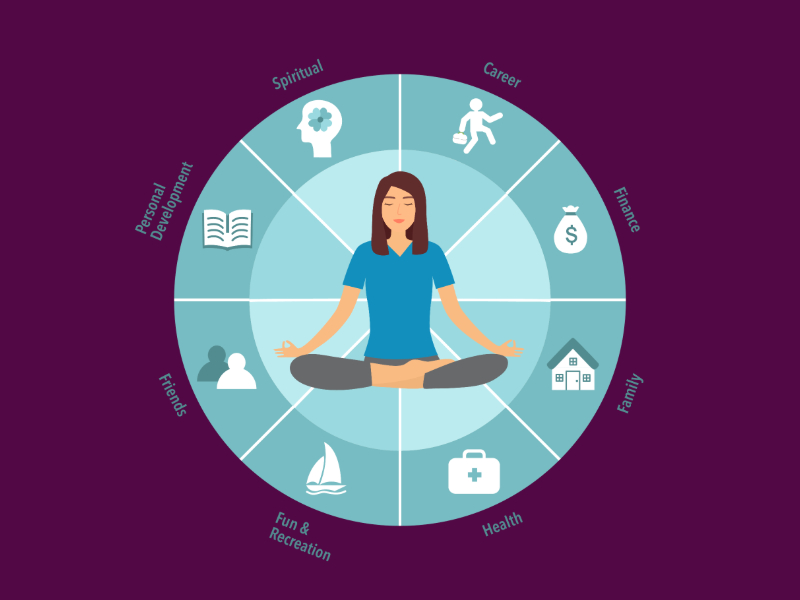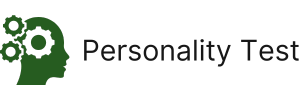OCEAN Personality Test: Understanding the Big Five Traits

Take Eysenck’s Personality Inventory Online
Test YourselfThe Big Five (OCEAN) personality test provides a comprehensive framework for understanding human personality across five fundamental dimensions. This assessment offers valuable insights into how individuals think, interact with others, and respond to various situations, making it one of the most scientifically validated and widely used personality models in modern psychology.
Origins and Scientific Basis of the Big Five Model
The Big Five personality model, also known as the Five-Factor Model, represents the culmination of decades of psychological research into human personality. Taking an OCEAN personality test online for free today gives you access to insights developed through rigorous statistical analysis by various human behavior analysts from the 1960s to the 1990s. This model has emerged as the most widely accepted theory in personality psychology.
Unlike many personality frameworks that originate from theoretical concepts, the Big Five model was created through factor analysis—a statistical process that determined how many distinct constructs account for observed patterns of correlations in personality traits. The OCEAN psychology test is grounded in research where countless verbal descriptors related to personality were analyzed, and these five factors consistently emerged from the data, giving the model strong empirical backing.
Today, the Big Five serves as the foundation for the vast majority of scientific research on personality, highlighting its credibility and utility in understanding human behavior. The OCEAN model test recognizes that personality exists on a spectrum rather than in distinct categories, acknowledging the complex and nuanced nature of human personality.
Understanding the Five Personality Dimensions
Openness to Experience
Openness reflects a person's receptivity to new ideas, experiences, and abstract thinking. When you take a personality test OCEAN, this dimension gauges your creativity, curiosity, and appreciation for novelty and aesthetic experiences.
Individuals scoring high on openness tend to be imaginative, intellectually curious, and appreciative of art and diverse perspectives. They often enjoy exploring new concepts, engaging with theoretical ideas, and questioning conventional wisdom. These individuals typically thrive in environments that value innovation, creative problem-solving, and abstract thinking.
Conversely, those scoring lower on openness generally prefer familiarity, tradition, and concrete thinking. The OCEAN assessment personality test identifies these individuals as practical, conventional, and focused on straightforward, proven approaches. They often excel in environments requiring reliability, consistency, and adherence to established protocols.
Conscientiousness
Conscientiousness measures a person's level of organization, persistence, and goal-directed behavior. This trait in an OCEAN personality quiz assesses how disciplined, responsible, and structured an individual tends to be in their approach to tasks and obligations.
People high in conscientiousness are typically organized, diligent, and methodical. They excel at planning, prioritizing tasks, and following through on commitments. These individuals tend to be self-disciplined, detail-oriented, and able to delay gratification for long-term goals. In professional settings, they often demonstrate reliability, thoroughness, and a strong work ethic.
Those scoring lower in conscientiousness may exhibit more spontaneity, flexibility, and a relaxed attitude toward rules and schedules. Your OCEAN personality test report might indicate that you prefer to approach tasks with less structure and more adaptability, potentially showing greater comfort with ambiguity and last-minute changes. While you might be less concerned with deadlines and organization, you may demonstrate strengths in adaptability and thinking outside established parameters.
Extraversion
Extraversion assesses the degree to which individuals seek stimulation from the external world, particularly through social interactions. The OCEAN test personality evaluates one's comfort and energy levels in social settings, ranging from highly outgoing to more reserved and introspective.
Highly extraverted individuals tend to be energetic, talkative, and socially confident. They typically gain energy from interacting with others, enjoy being the center of attention, and actively seek out social gatherings. In professional contexts, extraverts often excel in roles involving frequent interaction, team collaboration, and public speaking.
On the opposite end of the spectrum, those with lower extraversion scores (introverts) typically prefer solitude or smaller, more intimate social settings. An OCEAN personality test for free can help identify if you find extensive social interaction draining and need time alone to recharge. Introverts often demonstrate strengths in focused independent work, deep thinking, and one-on-one communications. It's important to note that introversion is not synonymous with shyness or social anxiety—rather, it reflects where individuals derive their energy and how they prefer to allocate their attention.
Agreeableness
Agreeableness measures an individual's tendency toward cooperation, compassion, and social harmony. This trait in the OCEAN test personality for free evaluates how people approach interpersonal relationships, from being highly accommodating to more competitive and skeptical.
People scoring high in agreeableness are typically friendly, empathetic, and cooperative. They value harmonious relationships, show concern for others' wellbeing, and often prioritize group cohesion over individual achievement. These individuals tend to be trusting, helpful, and willing to compromise for the sake of maintaining positive relations.
Those with lower agreeableness scores may exhibit more competitive, skeptical, or challenging behaviors in social interactions. The OCEAN scale test might reveal that you prioritize objective truth over tact, stand firm in negotiations, and question others' motives more readily. While this approach may sometimes create interpersonal tension, it can also lead to valuable critical thinking, objective decision-making, and the willingness to make unpopular but necessary choices.
Neuroticism
Neuroticism assesses emotional stability and the tendency to experience negative emotions. This dimension in an OCEAN online test measures how individuals respond to stress, process emotions, and maintain psychological equilibrium.
Individuals scoring high on neuroticism tend to experience more frequent and intense negative emotions such as anxiety, irritability, or sadness. They may be more sensitive to stress, react more strongly to criticism, and worry more about potential problems. While this heightened emotional reactivity can present challenges, it may also contribute to greater empathy, vigilance against risks, and artistic sensitivity.
Those with lower neuroticism scores typically display greater emotional stability, resilience, and calm under pressure. The OCEAN personality assessment helps identify if you tend to recover more quickly from setbacks, maintain more consistent moods, and experience less anxiety about potential threats. These individuals often demonstrate strengths in crisis management, stress tolerance, and maintaining perspective in challenging situations.
How the OCEAN Personality Test Works
The OCEAN personality test utilizes a structured self-evaluation format where individuals respond to a series of statements about their typical thoughts, feelings, and behaviors. Participants rate the accuracy of each statement on a scale, typically ranging from 1 (very inaccurate) to 5 (very accurate). For example, a statement might read "I enjoy being the center of attention" or "I pay attention to details."
The assessment then analyzes these responses to determine where an individual falls on the spectrum for each of the five personality dimensions. It's important to understand that these results represent continuous dimensions rather than categorical types—there are no distinct "types" of people, but rather varying degrees of each trait.
Results are typically presented as percentile scores or on a spectrum for each dimension, showing where individuals fall relative to population norms. Some online OCEAN personality quiz assessments may also break down the five broad domains into more specific aspects or facets, providing a more nuanced understanding of personality.
The test's scientific validity stems from its basis in factor analysis and decades of cross-cultural research demonstrating its consistency and predictive power across different populations. This empirical foundation distinguishes the Big Five from many other personality assessments that lack comparable scientific support.
Applications and Implications of the Big Five
Personal Development and Self-Awareness
Understanding your Big Five profile can significantly enhance self-awareness and personal growth. By recognizing your natural tendencies—whether you're highly organized, socially energetic, or emotionally sensitive—you can better leverage your strengths and develop strategies to address potential challenges.
For instance, someone scoring low on conscientiousness might implement specific organizational systems to compensate, while an individual high in neuroticism might benefit from stress management techniques. The OCEAN personality test provides a framework for understanding your natural inclinations without judging them as inherently good or bad.
Workplace Applications
The OCEAN personality test offers valuable insights for various workplace applications, from hiring and team formation to leadership development and conflict resolution. Organizations use Big Five assessments to:
- Better understand candidates' behavioral tendencies during recruitment
- Form complementary teams with diverse cognitive styles
- Improve communication by recognizing different personality preferences
- Enhance leadership effectiveness through greater self-awareness
- Tailor professional development to individual strengths and challenges
Unlike assessments that pigeonhole people into rigid types, the dimensional nature of the Big Five allows for nuanced understanding of personality in professional contexts. For example, it can help identify which team members might excel at creative brainstorming versus detail-oriented execution, or who might naturally take on mediating roles during conflicts.
Team Dynamics and Collaboration
One of the most valuable applications of the Big Five is understanding team dynamics and improving collaboration. By recognizing the personality diversity within a team, members can better appreciate different working styles and communication preferences.
For example, teams might leverage members high in openness for innovative thinking while relying on highly conscientious individuals to keep projects organized and on schedule. Understanding that an introverted team member's quietness in meetings reflects an energy preference rather than disengagement can prevent misunderstandings.
Some organizations use team workshops where members share and discuss their Big Five profiles, fostering greater mutual understanding and identifying strategies to optimize collaboration based on their collective personality landscape.
Limitations and Considerations
While the OCEAN personality test provides valuable insights into personality, it's important to recognize its limitations. The model doesn't account for all aspects of human personality—traits such as religiosity, honesty, and sense of humor don't load strongly onto the five factors. Additionally, the model describes patterns of behavior but doesn't explain their causes, though various researchers have developed theories about the origins of these traits.
Cultural considerations also apply, as some research suggests slight variations in how the traits manifest across different cultural contexts. Furthermore, while personality traits tend to be relatively stable over time, they aren't immutable—people can and do change, particularly during significant life phases.
It's also crucial to avoid using Big Five results deterministically or to make overly simplistic judgments. The complexity of human behavior extends beyond these five dimensions, and personality represents just one of many factors influencing how we think, feel, and behave in different situations.
Conclusion
The OCEAN personality test offers a scientifically robust framework for understanding the fundamental dimensions of human personality. By measuring openness, conscientiousness, extraversion, agreeableness, and neuroticism, it provides valuable insights into our natural tendencies across various contexts.
Unlike many personality assessments, the Big Five model's strength lies in its empirical development through factor analysis and its dimensional approach that acknowledges the spectrum of human personality. This scientific foundation has made it the predominant model in personality psychology research and a valuable tool for personal development, team building, and organizational effectiveness.
Understanding your Big Five profile can enhance self-awareness, improve interpersonal relationships, and provide a framework for leveraging your natural strengths while developing strategies for potential challenges. Whether used for personal insight or professional applications, the OCEAN personality assessment offers a meaningful lens through which to better understand yourself and others.
